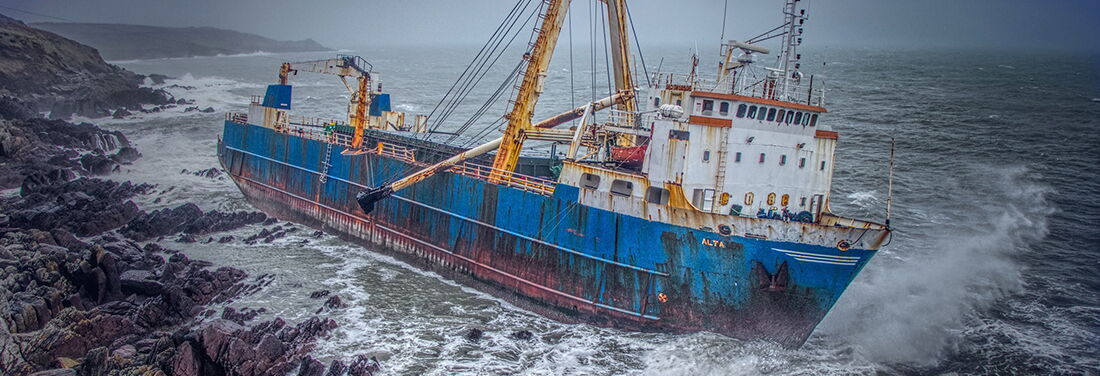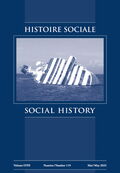Social Imaginaries of Emergency Situations at Sea Since 1800
“But every man naturally, or rather necessarily, familiarizes his imagination with the distresses to which he foresees that his situation may frequently expose him. It is impossible that a sailor should not frequently think of storms and shipwrecks, and foundering at sea, and of how he himself is likely both to feel and to act upon such occasions.” (Adam Smith, The Theory of Moral Sentiments, 1759)
Human activities at sea—from shipping to fishing or off-shore mining—incur specific risks and produce specific types of emergency situations (shipwreck, oil spills etc.). As Adam Smith notes in the quoted passage it is ‘impossible’ for those who are frequently exposed to these hazards not to think about these risks and emergencies, to imagine these situations and ways of reacting to them. Societies thus generate social imaginaries that interfere with the necessity—and also with the moral obligation—to intervene and provide relief. While dealing with extreme situations, such as shipwreck, is always a matter of very concrete practical demands, possibilities and abilities, such occurrences are also subject to symbolic representations and require negotiating between these representations and the features of the situation at hand.
Since the late 18th century, a particular addition to imaginaries of marine emergency has occurred: the advent of humanitarian organizations for saving lives from shipwreck. These organizations, aiming to institutionalize responses to the distress situation of shipwreck, generated a peculiar idiom of moral language and practice that countered the ordinary existential risk of shipwreck with the novel existential risk of lifesaving action. The emergency situation thus became a competition of existential risks. From this period onward, it seems that marine emergency has been increasingly subject to extremely exacting moral imperatives. The conference is based on the assumption that the advent of this humanitarian morality had ramifications for the imagination of emergency situations, an it seeks to explore these ramifications.
We do not assume that the moralization of shipwreck entirely upended existing imaginaries, nor that the history of imagined emergency can be reduced to it. Rather, we intend to fully take into account the fragmented and sometimes inconsistent nature of social representations, which endows them with their own complex dynamics. The question is then twofold: How did these imaginaries unfold? And what role did moral language and practice play in this process?
In order to get a grip on the complexity of the social imaginaries of emergency situations at sea, an appropriate scale of study is needed, which neither over-simplifies the question by only addressing abstract generalization, nor dissolves it in the overly particular.
We plan to focus on the median scale of the emergency situations, which will serve to render visible the inherent heterogeneity of the imaginaries in question. This is the case because situations are always in some sense preimagined. Otherwise they would hardly be recognizable as identifiable situations. Even if their identifiable character is constructed only on the spot, this is done departing from available imaginary resources.
Lifesaving at sea, for instance, can be sacrificial; it can be transactional; it can be agonal; and it can be bureaucratic and technological. These, and other, possibilities co-constitute the situation. We will be interested in finding out more about these and other co-constituents of emergency situations.
We will ask what significance the marine space and the symbolic and cultural representations associated with it have in the construction of the imaginaries connected to it; what types of narratives existed surrounding emergencies at sea, and how they in turn influence social actors’ perceptions of these events. We will also address the problem of the various ways in which technological changes affect the social imaginaries of emergency and rescue at sea. Not only do new technological developments alter the temporal and spatial frames of emergency situations (in terms of response speed and the understanding of distance); they also impact social imaginaries of agency in general. The effect of technology on social imaginaries should not however be thought of as a linear process, and the endurance in modified forms of some symbolic patterns—such as figures of the ‘heroic’—should also be focused on. Another crucial question concerns the increase of the scale of technology-induced maritime risk in contemporary times. If in the context of shipwreck relief / search and rescue, the imaginary of technology has generally been benign, in the context of industrial capitalism (e.g. oil spills), modernizing warfare, and finally global warming, the imaginary of technology has become more complex, even, to some, overwhelmingly malign. The urgency of the question of the layering of different, morally infused imaginaries of emergency, and of ‘rescue,’ in the marine context is really only fully apparent in light of this consideration. The competition of risks, the ‘risk society’ at sea, cannot be understood, we contend, without taking into account the full genealogy of this problem over the course of late modern history.
A collaboration between Mines Paris – PSL and the project Archipelagic Imperatives. Shipwreck and Lifesaving in European Societies since 1800.
Fig. above: Shipwreck of the ghost ship MV Alta on the Irish Coast near Ballycotton, Cork (detail). © Colm Ryan, CC BY-SA 4.0.
Program
Thursday, 30 Mar 2023
9.15 am Introduction
Chair: Henning Trüper (ZfL)
9.30 am
- Ilya Berkovich (Austrian Academy of Sciences, Vienna): Between Fascination and Primordial Fear: Old-Regime Soldierly Accounts of Sea Travel
10.45 am
- Johannes Lehmann (University of Bonn): Humanity and the Public Sphere: On the Conflicting Relationship between Private and State Rescue at Sea
Chair: Nebiha Guiga (ZfL)
11.45 am
- Narve Fulsås (University of Tromsø): The Humanization of Fatalities in Norwegian Fisheries 1850–1950
2.00 pm
- Michelle O’Toole (University of Edinburgh): Control, Identity and Meaning in Voluntary Lifeboating Work: A Case Study of the RNLI
Chair: Lukas Schemper (ZfL)
3.00 pm
- Carolina Kobelinsky (CNRS): Honouring Border-Crossers Who Have Died in the Mediterranean: When the Imaginaries of Emergency Situations Meet those of Foreign and Anonymous Deaths
4.30 pm
- Nebiha Guiga (ZfL), Aurélien Portelli (Mines Paris – PSL): Imaginaries of Lifeboating in the BBC Series ‘Saving Lives at Sea: narratives and visual constructions of danger and heroism’
Friday, 31 Mar 2023
Chair: Aurélien Portelli (Mines Paris – PSL)
9.00 am
- Henning Trüper (ZfL): Naval Emergency as Bad Luck: The Loss of HMS “Nimble,” 1834
- Frédéric Caille (Université Savoie Mont-Blanc): A Birth of Modern No-Border Humanitarianism: Inventing the Moral Signification of Lifesaving at Sea in the 19th Century
Chair: Alexandra Heimes (ZfL)
11.15 am
- Jean Philippe Miller-Tremblay (EHESS): Holding the Line: Military Imaginaries and British Shipwrecks during the First World War
1.30 pm
- Lukas Schemper (ZfL): Moral Shipwreck: Emergency Situations at Sea during Naval Confrontations of the Second World War
Chair: Jonathan Stafford (ZfL)
2.30 pm
- Ugo Corte (University of Stavanger): Saving Lives for a Living: Lifeguarding Approaches in Hawai’i and Beyond
4.00 pm
- Alexandra Heimes (ZfL): The Situation of Shipwreck and the Philosophy of Situation. Dilemmas and Crises of Decision-Making in Mid-Twentieth-Century Philosophers (Heidegger, Merleau-Ponty, Adorno)
5.00 pm Conclusion

